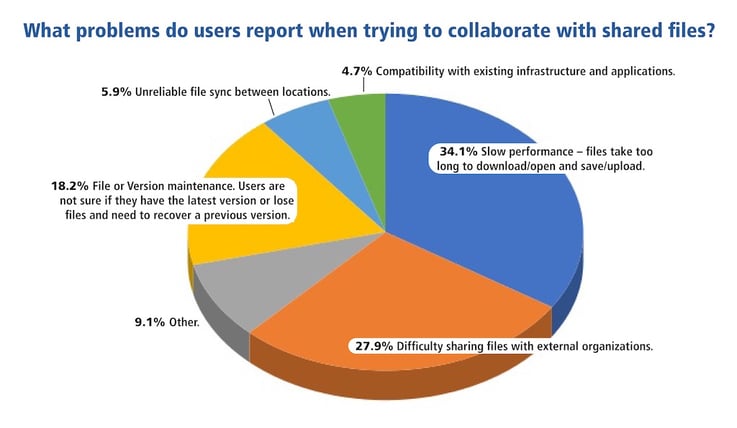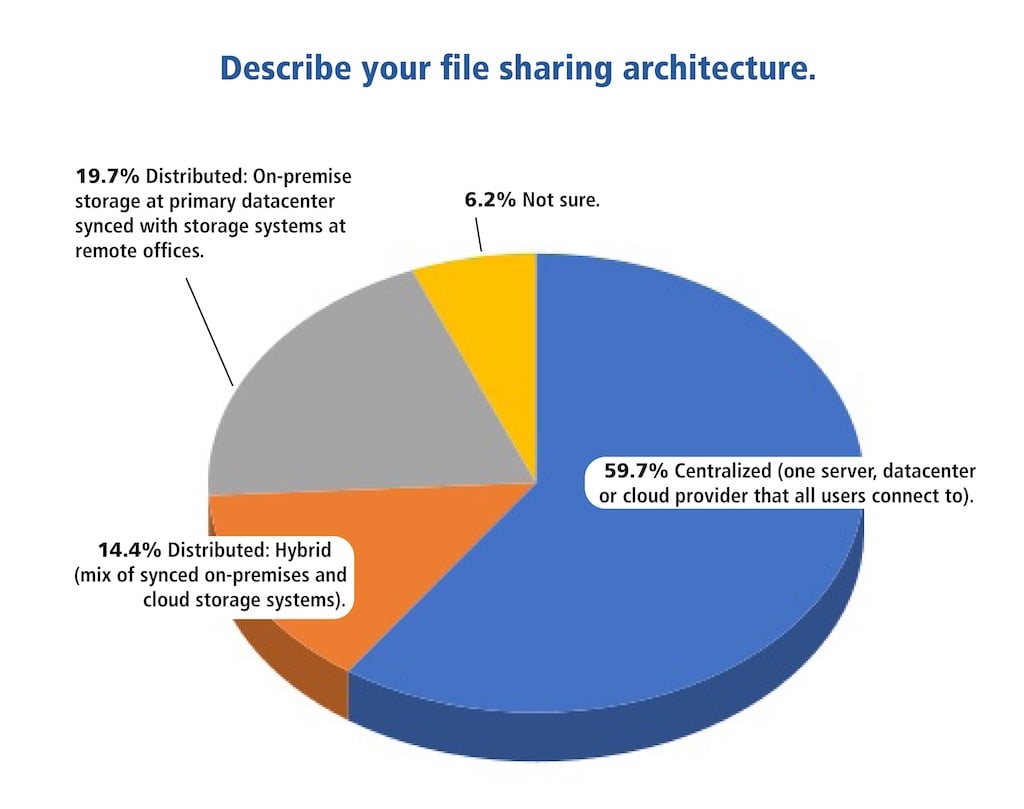The online survey, titled “CAD File Sharing & Collaboration,” was conducted by Cadalyst and sponsored by Peer Software to better understand the perceptions and experiences of CAD users and their companies relative to CAD file sharing and collaboration. Cadalyst and Peer conducted a similar survey in 2015.
Demographics
341 total respondents participated in the survey. The survey consisted of questions, primarily multiple-choice and open-ended questions and combinations thereof.
Respondents were engaged via an e-mail campaign to contacts in Cadalyst’s database in October and November 2023. As a thank-you for completing the survey, e-mail recipients were offered a copy of the final survey summary and results if they provided an e-mail address (via survey Question 1). No other incentive was offered or provided.
Notable Conclusions
The survey netted interesting and significant findings overall that shed previously undocumented insight into real-world challenges and experiences related to CAD file collaboration. Several findings were particularly notable and are included here along with our related observations. Data interpretation is subjective, of course, but we’ve strived to base our observations on first-hand experience in the CAD field as well as our knowledge of and feedback from the Cadalyst readership. Click here to download the full survey with comments and recommendations from Robert Green.

Companies struggle with problems when trying to collaborate with shared files (Question 7).
100% of survey respondents report problems when trying to collaborate with shared files. The highest (34.1%) struggle with slow performance and files taking too long to download and/or open. 27.9% had most difficulty sharing files with external organizations.
Comment: This graph should not surprise us as the problems are the same as they ever were. This is a classic summary of collaboration problems (versioning, sync problems, slow WANs, difficulty sharing files with traditional methods). The good news here is that the core of the prior survey that talked about these issues is still valid. While where files are shared has changed (home, remote) the problems of how to share haven’t changed.
One trend to note is that cloud sharing has increased since the last white paper — but not by as much as you’d think — so we can now surmise that cloud sharing hasn’t solved the problem which is a useful data point. If the thinking was the cloud would solve the problem then we now know that isn’t true — and that’s the case for everything from One Drive to Dropbox, to shared WAN folders on a central server. — RG

CAD users generally use a single, centralized server to share files (Question 11).
The survey asked respondents to describe their file sharing architecture. 59% use a centralized server, 19.7% use a distributed, on-premise storage at primary datacenter synced with storage systems at remote offices. 14.4% use a distributed, hybrid mix of synced on-premises and cloud storage solutions.
Comment: This result points to a single, centralized server still being the dominant (60%) storage model. Distributed shares from on-premises devices is at 20% and some form of hybrid on-premises and cloud is only 15%. Surprisingly, this result contrasts with industry pundits which forecast much higher rates of cloud adoption and distributed storage than observed here. — RG
In Summary
The survey shows that the more that things change, the more they’ve stayed the same. Specifically:
-
Most CAD users still struggle with the effects of slow file transport over the public domain Internet and poorly capitalized WANs.
-
Many CAD users still operate in an environment that is driven by IT departments that don’t have a firm understanding of CAD applications and the unique requirements of their large file data sets. Simply put, IT doesn’t understand the problem.
-
Many CAD users still operate under the assumption that “we can just use email, Dropbox, or OneDrive to solve these problems” even when years of observations clearly show that isn’t
the case.
The diversity of responses in the survey shows that even when companies “throw money at the bandwidth problem,” the majority still don’t get good results and continue to experience sync issues.
The 2024 survey results continue to paint a picture of a CAD workforce that is increasingly scattered due to remote work arrangements or the proliferation of branch offices. Yet as the workforce is deployed in this increasingly scattered geography, the IT infrastructure hasn’t changed. This leads to even more of the classic file control errors that cost so much money to fix.

Robert Green
Robert Green performs CAD programming, standardization, and consulting services globally. He is the author of Expert CAD Management: The Complete Guide. Reach him via his website (greenconsulting.com/).
View All Articles



Share This Post